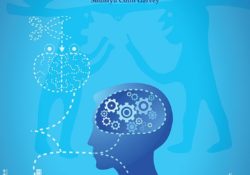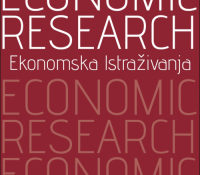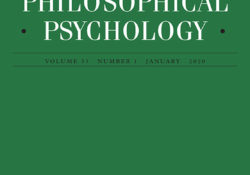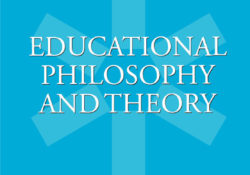tandfonline.com har udgivet en rapport under søgningen “Teacher Education Mathematics”: ABSTRACT ABSTRACT Artificial intelligence research is seldom conducted ethnographically. Nevertheless, the field itself has a distinctive culture – an engineering imaginary within which ‘general intelligence’ is considered to be a phenomenon that can be both defined and tested by reference to some universal (probably mathematical) standard. This paper describes a research agenda that sets out to question those assumptions, through a programme of ethnographic field work, collaborating with computer scientists and educators in several countries of sub-Saharan Africa. Link til kilde
Like this:
Like Loading...
tandfonline.com har udgivet en rapport under søgningen “Teacher Education Mathematics”: Link til kilde
Like this:
Like Loading...
tandfonline.com har udgivet en rapport under søgningen “Teacher Education Mathematics”: Abstract Formulae display:?Mathematical formulae have been encoded as MathML and are displayed in this HTML version using MathJax in order to improve their display. Uncheck the box to turn MathJax off. This feature requires Javascript. Click on a formula to zoom. Abstract This research study contributes towards understanding the customer’s behaviour dynamics. In business analysis, it is very important not to ignore the fact that the interaction between human beings implicitly includes an emotional dimension. The research methodology includes the following: (1) customer purchase pattern prediction methods based on correlation; (2) augmentation of data set by using genetic algorithms; and (3) multiple regression models. The analysis indicates how the hobby of a customer is directly related to the purchase patterns… Continue Reading →
Like this:
Like Loading...
tandfonline.com har udgivet en rapport under søgningen “Teacher Education Mathematics”: ABSTRACT ABSTRACT In a very short time, it is likely that we will identify many of the genetic variants underlying individual differences in intelligence. We should be prepared for the possibility that these variants are not distributed identically among all geographic populations, and that this explains some of the phenotypic differences in measured intelligence among groups. However, some philosophers and scientists believe that we should refrain from conducting research that might demonstrate the (partly) genetic origin of group differences in IQ. Many scholars view academic interest in this topic as inherently morally suspect or even racist. The majority of philosophers and social scientists take it for granted that all population differences in intelligence are due to environmental factors. The present… Continue Reading →
Like this:
Like Loading...
tandfonline.com har udgivet en rapport under søgningen “Teacher Education Mathematics”: Link til kilde
Like this:
Like Loading...
tandfonline.com har udgivet en rapport under søgningen “Teacher Education Mathematics”: ABSTRACT ABSTRACT This brief article introduces the topic of intelligence as highly appropriate for educational measurement professionals. It describes some of the uses of intelligence tests both historically and currently. It argues why knowledge of intelligence theory and intelligence testing is important for educational measurement professionals. The articles that follow in this special issue will provide readers with considerable information about the history of intelligence theory and testing, and especially of the Cattell-Horn-Carroll (CHC) model of testing and its implementation. The following articles will also provide a well-reasoned approach to the way science should work in evaluating tests and the models on which they are based. Link til kilde
Like this:
Like Loading...
tandfonline.com har udgivet en rapport under søgningen “Teacher Education Mathematics”: Abstract Abstract The present study investigates the effects of different kinds of praise on 108 students in vocational education, using a similar design as the original mindset studies. Students worked on a set of Raven’s Standard Progressive Matrices and either received praise for effort, received praise for intelligence, or were in the control group. Results were not in line with mindset theory. We expected differences in goal choice and performance after experiencing setbacks between students who were praised for effort or who were praised for intelligence, but both groups reacted in the same way. Our results are in line with previous studies that also did not succeed in finding a relation between mindset and academic performance. This study shows that… Continue Reading →
Like this:
Like Loading...
tandfonline.com har udgivet en rapport under søgningen “Teacher Education Mathematics”: ABSTRACT ABSTRACT Mindset plays a pivotal role in academic achievement. In particular, a growth mindset is related to academic success. This study explored the role of mindset in Secondary Vocational Education and Training (VET). Participants were 1005 VET students attending eight different vocational programmes on three qualification levels in the rural southwest of the Netherlands. They filled out an online questionnaire that was combined with the school administration system for demographical information and school results. Results showed that 13.9% of the participants had a fixed mindset, 47.3% a growth mindset, and 38.8% a mixed mindset. Our findings indicate that VET students’ mean mindset does not substantially differ from the mindset of students in other forms of education. However, the majority… Continue Reading →
Like this:
Like Loading...
eric.ed.gov har udgivet: The aim of this study is to find out whether intelligence distributions differ or not according to gender and departmental variables by determining the dominant intelligence (Multiple Intelligence) distributions of prospective teachers studying at Yildiz Technical University Education Faculty. The population of the research constitutes the prospective teachers majoring at Yildiz Technical University Education Faculty in 2014-2015 academic year. The study group contains a total of 254 prospective teachers selected by random cluster sampling method who have been educated in preschool teaching of primary education department (64 people), mathematics teaching (64 people), science teaching (92 people) and CITE (34 people). In this research conducted based on the screening model, Multiple Intelligence Scale developed by Çeliköz et al. (2008) and composed of 11 different situations and 88 questions… Continue Reading →
Like this:
Like Loading...
eric.ed.gov har udgivet: The construction of a connective brain begins at the earliest ages of human development. However, knowledge about individual and collective brains provided so far by research has been rarely incorporated into Maths in Early Childhood classrooms. In spite of that, it is obvious that it is at these ages when the learning of mathematics acts as a nuclear element for decision-making, problem-solving, data-processing and the understanding of the world. From that perspective, this research aims to analyse the mathematics teaching-learning process at early ages based on connectionism, with the specific objectives being, on the one hand, to determine the features of mathematics practices which promote connections and, on the other hand, to identify different types of mathematics connections to enhance connective intelligence. The research was carried out… Continue Reading →
Like this:
Like Loading...







